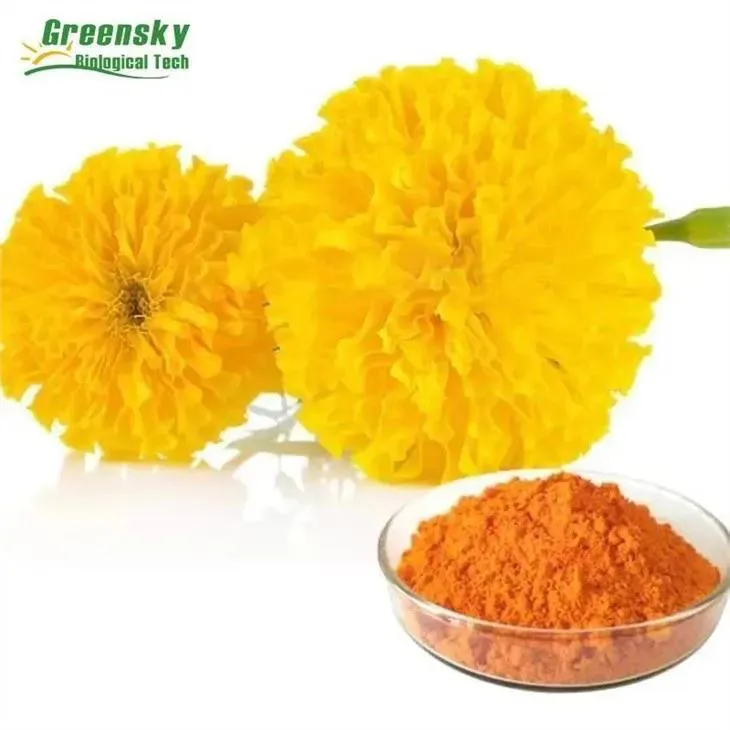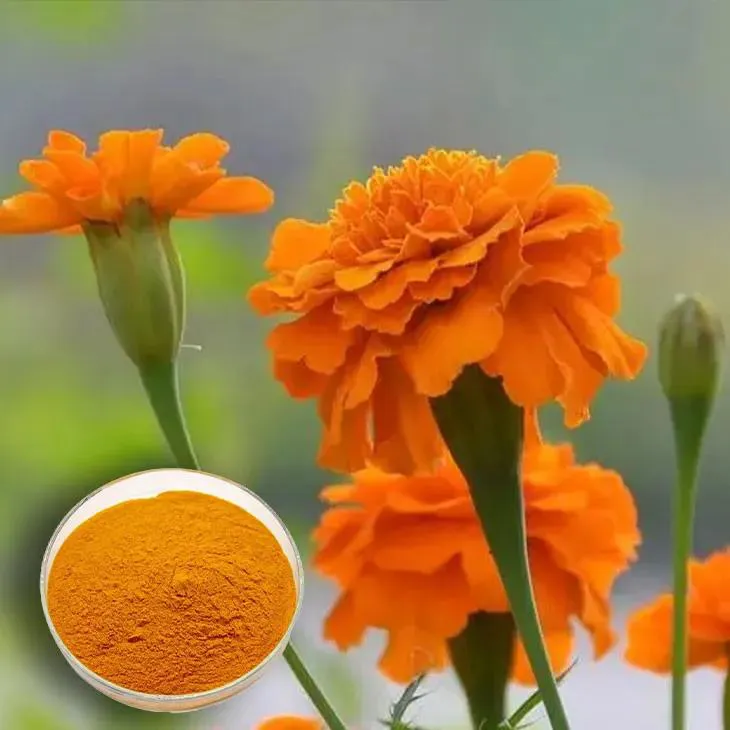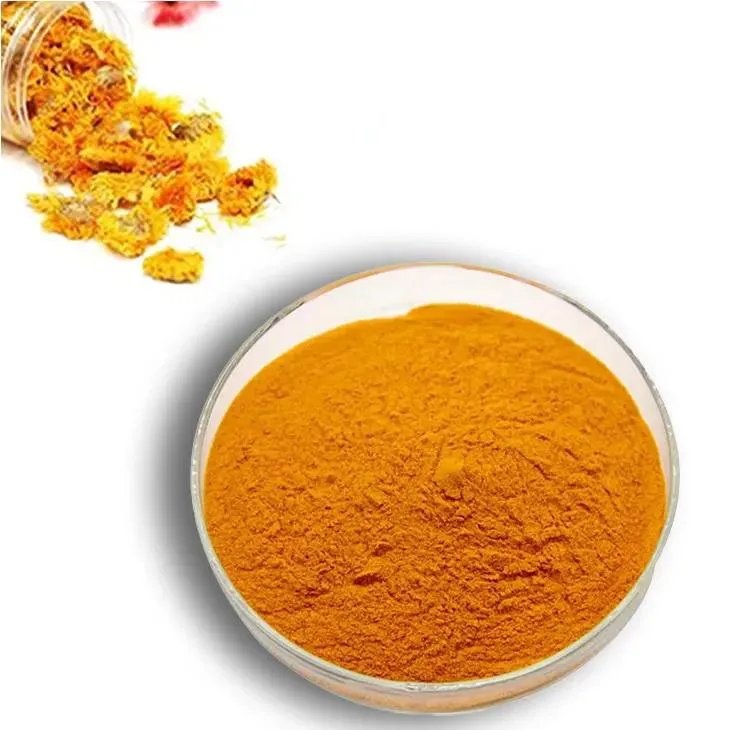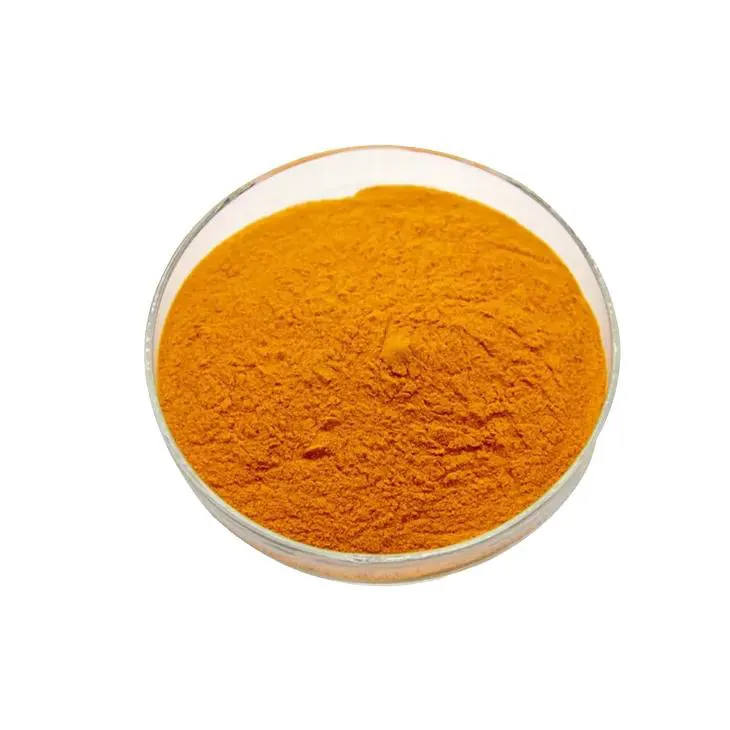- 0086-571-85302990
- sales@greenskybio.com
Two Bases for the Quality of Marigold Extract: Potency and Purity.
2024-12-20

1. Introduction
Marigold Extract has gained significant importance in various industries, including food, medicine, and cosmetics. The quality of Marigold Extract is determined by two crucial factors: potency and purity. Understanding these aspects is essential for ensuring its effectiveness and safety in different applications.

2. Potency of Marigold Extract
2.1 Definition and Measurement
Potency refers to the strength or concentration of the active compounds in marigold extract. In marigold, the most important active compounds are carotenoids, particularly lutein and zeaxanthin. These are measured in terms of their content per unit of the extract. For example, the lutein content can be determined using high - performance liquid chromatography (HPLC). This method allows for accurate quantification of the carotenoid levels, which in turn indicates the potency of the marigold extract.
2.2 Significance in Different Applications
2.2.1 Food Coloring
In the food industry, marigold extract is used as a natural food coloring agent. The potency of the extract is crucial here. A more potent extract with a higher concentration of carotenoids will provide a more vibrant and consistent color. For instance, in products like margarine or cheese, a potent marigold extract can give the desired yellow - orange hue without the need for large quantities of the extract. This is not only cost - effective but also meets the consumer demand for natural colorants.
2.2.2 Medicine
In medicine, the potency of marigold extract plays a vital role. Lutein and zeaxanthin are known for their antioxidant properties. A potent marigold extract can be used in dietary supplements or in ophthalmic formulations. For example, in eye health supplements, a sufficient potency of these carotenoids is necessary to support macular health. Studies have shown that a certain level of lutein and zeaxanthin intake can reduce the risk of age - related macular degeneration.
2.2.3 Cosmetics
Cosmetics also benefit from the potency of marigold extract. These carotenoids have skin - protecting properties. A highly potent extract can be incorporated into creams, lotions, and sunscreens. In sunscreens, for example, the antioxidant nature of lutein and zeaxanthin in a potent marigold extract can help protect the skin from damage caused by ultraviolet (UV) radiation.

3. Purity of Marigold Extract
3.1 Definition and Importance
Purity of marigold extract refers to the absence of contaminants such as heavy metals, pesticides, and other impurities. High - purity marigold extract is essential for ensuring safety, especially in applications where it is consumed or applied to the body. For example, in medicine and food, any contaminants in the extract could pose serious health risks. In cosmetics, impurities might cause skin irritation or allergic reactions.
3.2 Factors Affecting Purity
3.2.1 Source of Marigold
The source of marigold plants is a significant factor. Marigolds grown in contaminated soil or near industrial areas are more likely to accumulate heavy metals or pesticides. Organic marigold farming, on the other hand, can help reduce the risk of contamination. Organic farms follow strict regulations regarding the use of fertilizers and pesticides, which can lead to purer marigold plants and, consequently, purer extracts.
3.2.2 Extraction Process
The extraction process also affects the purity of marigold extract. Using clean solvents and proper extraction techniques is crucial. For example, supercritical fluid extraction is considered a cleaner method compared to traditional solvent extraction. In supercritical fluid extraction, substances like carbon dioxide are used in a supercritical state, which can selectively extract the active compounds from marigold while leaving behind many contaminants.

4. Factors Influencing Potency and Purity
4.1 Genetic Factors
Different marigold varieties have different genetic make - ups that can affect the potency and purity of the extract. Some varieties may naturally produce higher levels of carotenoids, thus having a higher potency. Additionally, genetic factors can also influence the plant's ability to resist pests and diseases, which in turn can affect purity. For example, a marigold variety with strong genetic resistance may require less pesticide application, leading to a purer extract.
4.2 Environmental Conditions
Environmental conditions such as sunlight, temperature, and soil quality play a role in both potency and purity. Adequate sunlight is necessary for marigold plants to produce carotenoids, thus affecting potency. In terms of purity, soil quality can impact the uptake of contaminants. For instance, if the soil has a high level of heavy metals, marigold plants may absorb these metals, reducing the purity of the extract.
4.3 Processing and Storage
After extraction, the processing and storage of marigold extract are important. Proper processing techniques can help maintain the potency of the extract. For example, avoiding excessive heat during processing can prevent the degradation of carotenoids. Regarding purity, proper storage conditions are essential. Storing the extract in a cool, dry place can prevent the growth of mold or the contamination by other substances.

5. Conclusion
In conclusion, the quality of marigold extract is firmly based on two pillars: potency and purity. Potency determines the effectiveness of the extract in various applications, while purity ensures its safety and consistent quality. Understanding the factors that influence both potency and purity is crucial for producers, consumers, and regulatory bodies. Producers need to optimize their production processes to ensure high - quality marigold extract, consumers can make informed choices based on these quality aspects, and regulatory bodies can set appropriate standards to safeguard public health and ensure product quality.
FAQ:
1. What is marigold extract?
Marigold extract is a substance obtained from marigold plants. It contains various compounds such as flavonoids and carotenoids. It is widely used in different industries including food, medicine, and cosmetics due to its unique properties.
2. How does potency affect the effectiveness of marigold extract in food coloring?
The potency of marigold extract determines the intensity of the color it can impart. A more potent extract has a higher concentration of pigments like lutein and zeaxanthin. These pigments are responsible for the yellow - orange color. In food coloring, a potent extract can provide a vivid and consistent color, making the product more visually appealing.
3. Why is purity important for marigold extract in medicine?
In medicine, purity is crucial for marigold extract. Impurities in the extract could potentially cause adverse reactions or interfere with the intended therapeutic effects. A pure marigold extract ensures that the active compounds are present in the correct form and concentration, maximizing the effectiveness and safety of the treatment.
4. What factors can influence the potency of marigold extract?
Several factors can influence the potency of marigold extract. The variety of marigold used, the growing conditions (such as soil quality, sunlight, and water availability), and the extraction method all play a role. For example, a marigold variety rich in pigments, grown in optimal conditions and extracted using an efficient method will likely result in a more potent extract.
5. How can one ensure the purity of marigold extract?
To ensure the purity of marigold extract, strict quality control measures are necessary. This includes using high - quality raw materials, following good manufacturing practices during the extraction process, and conducting thorough purification steps such as filtration and chromatography. Regular testing for contaminants and impurities also helps in maintaining the purity of the extract.
Related literature
- Analysis of Marigold Extract: Potency and Purity Assessment"
- "The Role of Potency and Purity in Marigold Extract for Cosmetic Applications"
- "Marigold Extract Quality: Understanding Potency and Purity in Food and Medicine"
- ▶ Hesperidin
- ▶ citrus bioflavonoids
- ▶ plant extract
- ▶ lycopene
- ▶ Diosmin
- ▶ Grape seed extract
- ▶ Sea buckthorn Juice Powder
- ▶ Beetroot powder
- ▶ Hops Extract
- ▶ Artichoke Extract
- ▶ Reishi mushroom extract
- ▶ Astaxanthin
- ▶ Green Tea Extract
- ▶ Curcumin Extract
- ▶ Horse Chestnut Extract
- ▶ Other Problems
- ▶ Boswellia Serrata Extract
- ▶ Resveratrol Extract
- ▶ Marigold Extract
- ▶ Grape Leaf Extract
- ▶ blog3
- ▶ blog4
- ▶ blog5
-
Pure 85% Tomentil Extract.
2024-12-20
-
Bilberry Extract
2024-12-20
-
Moringa powder
2024-12-20
-
Red Date Extract
2024-12-20
-
Propolis Extract Powder
2024-12-20
-
Eyebright Extract
2024-12-20
-
Oat Straw Extract Powder
2024-12-20
-
Honeysuckle Pollen
2024-12-20
-
Eucommia Ulmoides Extract
2024-12-20
-
Tormentil Extract
2024-12-20
-
Troxerutin
2024-12-20





















